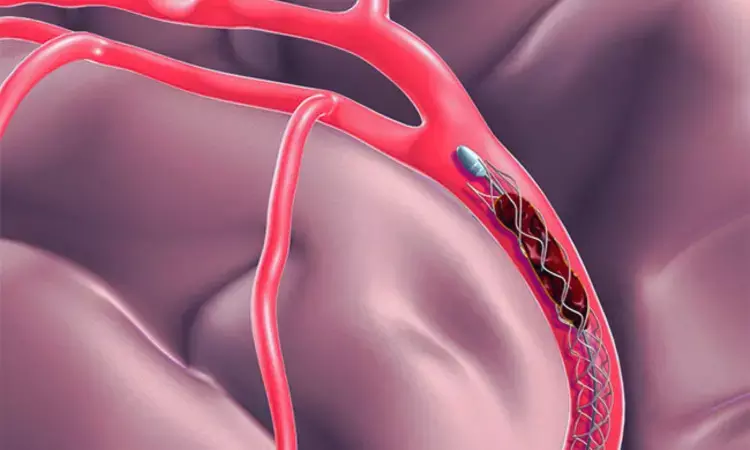- Home
- Medical news & Guidelines
- Anesthesiology
- Cardiology and CTVS
- Critical Care
- Dentistry
- Dermatology
- Diabetes and Endocrinology
- ENT
- Gastroenterology
- Medicine
- Nephrology
- Neurology
- Obstretics-Gynaecology
- Oncology
- Ophthalmology
- Orthopaedics
- Pediatrics-Neonatology
- Psychiatry
- Pulmonology
- Radiology
- Surgery
- Urology
- Laboratory Medicine
- Diet
- Nursing
- Paramedical
- Physiotherapy
- Health news
- Fact Check
- Bone Health Fact Check
- Brain Health Fact Check
- Cancer Related Fact Check
- Child Care Fact Check
- Dental and oral health fact check
- Diabetes and metabolic health fact check
- Diet and Nutrition Fact Check
- Eye and ENT Care Fact Check
- Fitness fact check
- Gut health fact check
- Heart health fact check
- Kidney health fact check
- Medical education fact check
- Men's health fact check
- Respiratory fact check
- Skin and hair care fact check
- Vaccine and Immunization fact check
- Women's health fact check
- AYUSH
- State News
- Andaman and Nicobar Islands
- Andhra Pradesh
- Arunachal Pradesh
- Assam
- Bihar
- Chandigarh
- Chattisgarh
- Dadra and Nagar Haveli
- Daman and Diu
- Delhi
- Goa
- Gujarat
- Haryana
- Himachal Pradesh
- Jammu & Kashmir
- Jharkhand
- Karnataka
- Kerala
- Ladakh
- Lakshadweep
- Madhya Pradesh
- Maharashtra
- Manipur
- Meghalaya
- Mizoram
- Nagaland
- Odisha
- Puducherry
- Punjab
- Rajasthan
- Sikkim
- Tamil Nadu
- Telangana
- Tripura
- Uttar Pradesh
- Uttrakhand
- West Bengal
- Medical Education
- Industry
Transradial access for thrombectomy is safe and effective to transfemoral access for Stroke: AHA

A recent study found transradial access for mechanical thrombectomy to be non-inferior to transfemoral access in terms of final recanalization. The key highlights of this study were published in the Stroke Journal.
Transfemoral access has been the standard method for accessing blocked arteries in stroke patients with large vessel occlusions. And so, a new investigation by David Hernandez and team introduced transradial access as a reliable alternative. This investigator-initiated, single-center clinical trial compared the efficacy and safety of transradial and transfemoral access in stroke patients undergoing mechanical thrombectomy.
The major findings of this study were;
The outcomes associated with transradial access was non-inferior to its traditional method which revealed achieving a successful recanalization for stroke intervention. Out of the 120 patients enrolled in the trial, the participants who were assigned to transradial access demonstrated a 96.6% achieving successful recanalization. This finding suggests that transradial access is a reliable method for restoring blood flow to the brain in stroke patients.
The procedural delays were noticed in the transradial access group, with longer median times recorded from angiosuite arrival to both first pass and recanalization when compared to the transfemoral approach. Despite this, both methods presented similar rates of severe complications and access conversions.
These pivotal findings offer clinicians an alternative approach for delivering life-saving treatment to stroke patients. However, maximum caution and further research is much imperative to fully elucidate the optimal approach in considering the procedural delays associated with the transradial access.
Source:
Hernandez, D., Requena, M., Olivé Gadea, M., De Dios Lascuevas, M., Gramegna, L. L., Muchada, M., García-Tornel, Á., Diana, F., Rizzo, F., Rivera, E., Rubiera, M., Piñana, C., Rodrigo-Gisbert, M., Rodriguez-Luna, D., PAGOLA, J., Carmona, T., Juega, J., Rodriguez-Villatoro, N., Molina, C. A., … Tomasello, A. (2024). Radial Versus Femoral Access for Mechanical Thrombectomy in Stroke Patients: A Non-Inferiority Randomized Clinical Trial. In Stroke. Ovid Technologies (Wolters Kluwer Health). https://doi.org/10.1161/strokeaha.124.046360
Neuroscience Masters graduate
Jacinthlyn Sylvia, a Neuroscience Master's graduate from Chennai has worked extensively in deciphering the neurobiology of cognition and motor control in aging. She also has spread-out exposure to Neurosurgery from her Bachelor’s. She is currently involved in active Neuro-Oncology research. She is an upcoming neuroscientist with a fiery passion for writing. Her news cover at Medical Dialogues feature recent discoveries and updates from the healthcare and biomedical research fields. She can be reached at editorial@medicaldialogues.in
Dr Kamal Kant Kohli-MBBS, DTCD- a chest specialist with more than 30 years of practice and a flair for writing clinical articles, Dr Kamal Kant Kohli joined Medical Dialogues as a Chief Editor of Medical News. Besides writing articles, as an editor, he proofreads and verifies all the medical content published on Medical Dialogues including those coming from journals, studies,medical conferences,guidelines etc. Email: drkohli@medicaldialogues.in. Contact no. 011-43720751


